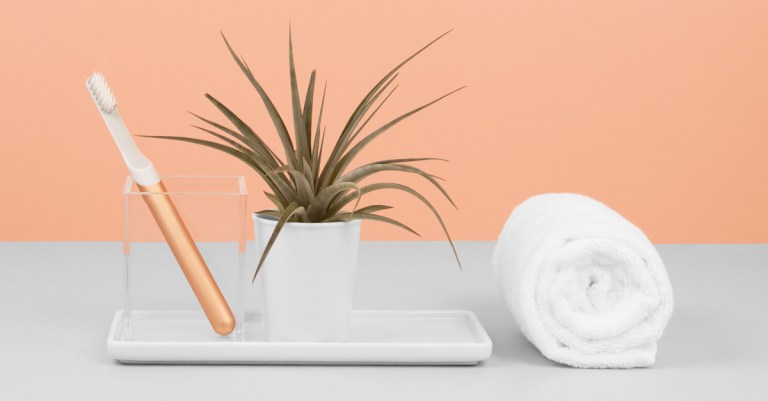Quip Takes Its Toothbrushes To Target

Subscription services are finding a new home in brick-and-mortar stores. To that end, dental care startup Quip plans to sell its electric toothbrush starter sets at Target in hopes that shoppers will become future subscribers. Many consumers don’t practice good dental care habits, which CEO Simon Enever knows firsthand. He came up with the idea for the service after he went to a dentist and learned he had some less-than-ideal habits, such as not changing his toothbrush at the proper time. On top of that, a lot of consumers don’t like oral care. “When you don’t like something you don’t tend to invest in it or do it well,” Enever told PYMNTS in an interview.
To design a more enjoyable experience for consumers, Enever sought to create a brand that people with which people want to interact. As it stands, the normal toothbrush buying process is hardly ideal — or enjoyable. While most dentists recommend electronic toothbrushes to their patients, not many actually purchase one after they leave the dentist’s chair. The consumers who do, in fact, go to a store to find a toothbrush are presented with a dizzying array of colors and messages in an oral care aisle. As a result, a consumer might be left confused. Which toothbrush was the dentist recommending? Oscillating? Sonic? Assuming that a consumer does make a purchase, they’re left on their own, “and they’re expected to do the basics right,” according to Enever. That is use the brush right, use the brush often and change the brush (or brush head) on time.
The Business Model
In order to make sure that its customers weren’t alone once they bought the brush, Quip’s subscription sends customers a new brush head every three months. The idea is to help consumers build healthy habits through toothbrush subscriptions, which can also come with toothpaste. But why expand to brick-and-mortar retail? Simply said, Enever said the company is able to reach a bigger audience in a place where consumers usually shop for toothbrushes. With that, the company is able to introduce its offerings, which include the subscriptions. “The brush is just the beginning,” Enever said. “We want to help the user change it on time and so on.”
When it comes to the design of the display, Quip finds its home in brick-and-mortar retail at the end cap in Target. Enever described the set up as a pronounced, clean, simple and easy-to-understand display. It also has a familiar feel to those who have seen the brand promoted in other channels. “It looks a lot like our online ads and our offline ads,” he said. At the same time, the display helps consumers actually experience a toothbrush. People love online imagery, but the digital world can’t match the experience of touching the metal handle and seeing the brush’s small size firsthand.
Why did Enever pick Target to help consumers start this journey? Target is no stranger to melding the online and offline worlds. The retailer already has brought digitally native brands such as Harry’s and Casper into its stores, and it is known for being brand- and design-forward. Enever felt comfortable that his brand would be in good hands. Overall, “we wanted to make sure that we did it the right way with the right partner,” he said.
To help promote its online offerings, Enever has a few different touch points for consumers in the end cap displays. For starters, a website is included on the display, and, in a couple of clicks, customers can find out where to order refills. There is also similar messaging on the actual product packaging. The brand takes its messaging a step forward by providing potential repeat customers a chance to sign up for a subscription. A code within each box offers a consumer a free refill, showing that the shelves of a brick-and-mortar store can be a way to acquire new subscribers.